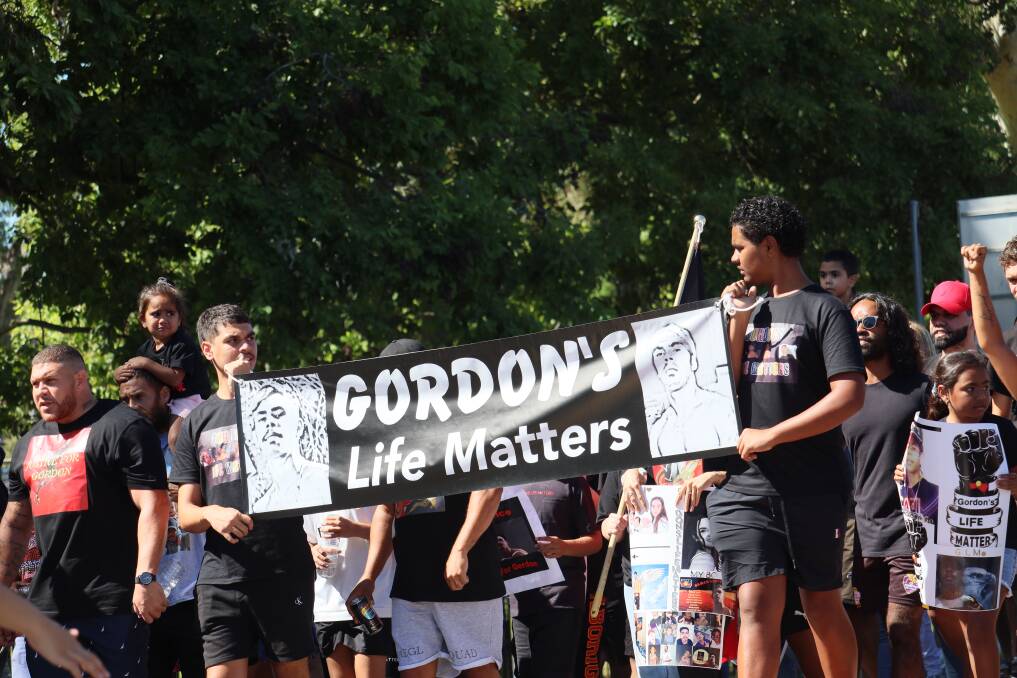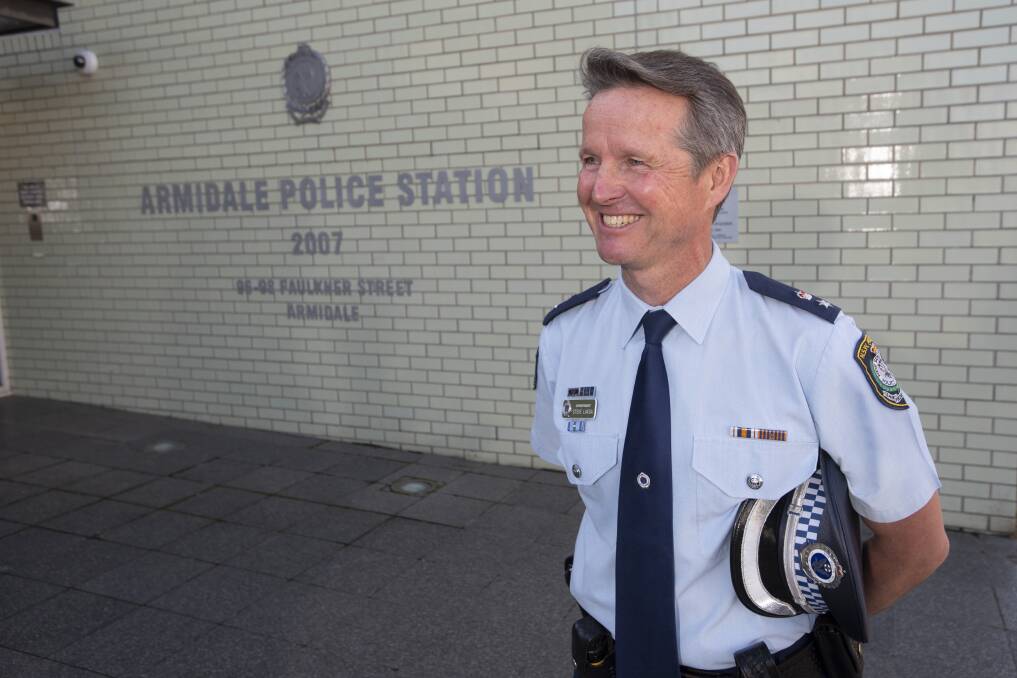
The New England Police District Commander has admitted action has been taken against an officer, and changes made within the force as a direct result of the Gordon Copeland incident.
Subscribe now for unlimited access.
$0/
(min cost $0)
or signup to continue reading
Mr Copeland's body was found three months after disappearing into the Gwydir River at Moree during a police incident in the early hours of July 10, 2021. The coronial inquest into his death began in the town on Monday, July 18.
The court heard evidence from Superintendent Steve Laksa on Wednesday afternoon who said there had been action taken against one of the officers in relation to conduct - in terms of unprofessionalism seen played through the body worn vision - to ensure that didn't happen again.
"We don't wait for the inquest; we don't sit on our hands. We will actively try and take the information as best we can so we can correct it," he said.
EARLIER FROM THE INQUEST:
Supt Laksa said during the past 12 months the police had been trying to learn from the incident every day.
"Right from the very start there was a directive given by me to the senior management team, and also to the command, in relation to reporting. The inspector now every day sends an email out to the staff saying you are to call me, this is my number, I am on call."
Supt Laksa also reinforced the importance of clear note taking, and that it was crucial to capture information of what has been seen and heard.
"Part of the guidance given as a result of Gordon's tragedy is providing a screed... a word document, describing the detail of what happened," he said.
The officer, with more than 30 years experience in the force, told the inquest about 60 per cent of staff in Moree have less than two years experience.
"It puts a lot of responsibility on inspectors in ensuring juniors have the right level of supervision, and it is a challenge," he said.

Challenges for police
Supt Laksa admitted there were a number of challenges faced throughout the event.
He explained that the event had to be deemed a critical incident. After reading a statement from of the officers involved in the first incident of police "following" a vehicle, people being sighted, a fall and a possible injury and reading there was an indication the person who had fallen down the riverbank had made a noise, it could be consistent with injury, and because the person couldn't be located, death may have been involved.
Supt Laksa explained the first search had to be called off because they were unsure who they were searching for, if anybody.
He said it was a deduction process in making the determination to stop.
"If someone was in the water drowning I believed they - the other occupants of the vehicle who ran from police - would willingly tell us someone else was there. My thought process was, if we continue, who are we searching for? I pondered, was there any other information of someone else in the car - no. I couldn't tell (senior management), there was just no other person to search for."
He described his feelings when he learned Mr Copelad was missing.
"My stomach turned, my heart dropped and I immediately thought, we've got it wrong."
The impact and the future
"This has has had the most significant impact on a bunch of individual staff. In the last two weeks and 12 months I have never seen so many tears from junior staff, discussions or contemplations in relation to staff leaving this organisation based on the circumstance and the challenges they were confronted by and dealt with," Supt Laksa said.
"Those young police never joined the cops to hurt anyone and neither did I. It's a situation where on that night the cops were doing the best they could with what they had, and the circumstances and the environment they were confronted by."
When asked if provisions needed to be bolstered Supt Laksa didn't overly agree, saying there were other experts in different fields but recognised locally many were on a volunatary basis such as the SES.
"If we get to the point where we need (all that equipment) we've already failed," he said.
"For me it's what do we need to do to stop young people like Gordon Copeland, Aboriginal people, young any people, running from the police.
READ ALSO:
"We need our Aboriginal community members to help build the future of Moree ... I think it would be a failure on me, the police, the whole government if we don't get together to try to make a difference and that's the challenge.
"I want us to have positive relationship, but I don't know how we mend with the tragedy and the potential failures. I don't know what we do moving forward, trying to think of the future in terms of the whole community of Moree.
"Whatever words I give in sympathy will never be enough but I've shed more tears (over) this matter than any other job I've dealt with my whole policing career.
"The tears of young police have been extraordinary and they're tears of absolute honesty, and I know there will be doubt in relation to that, but police just want to come to work and do their job.
"An inspector once said to me, 'you scratch a cop, you'll find a crusader' and I think if anyone could, they would have jumped into that river and tried to save Gordon if they had the ability to do it, but on that night, they didn't have the ability to do it," he said.

